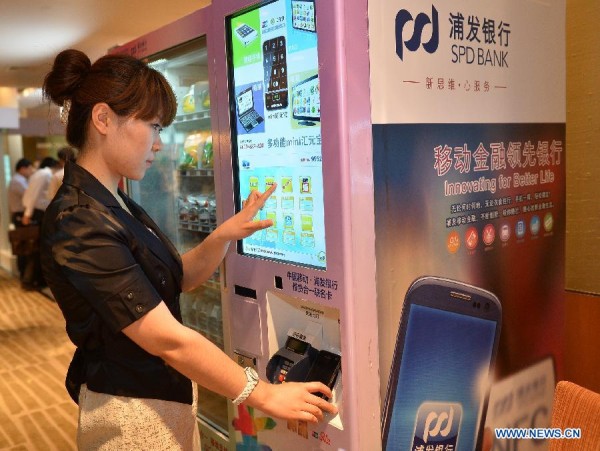China’s third-party payment service sector faces a major setback after one of the first companies to obtain a license in the business was shut down by the country’s central bank last week.
The People's Bank of China (PBOC) revoked the license of Zhejiang Yi Shi Enterprise Management Services Company to operate in the payment business on Aug. 28 after the company was found to have misused its customers' money, according to a report from the Guangzhou-based 21st Century Business Herald.
The central bank started work in July to safeguard customers and vendors after the prepaid cards issued by the company were not accepted at some locations, the report said.
Established in Oct. 2007, Yi Shi was among the first 27 companies granted licenses to operate third-party payment services in China back in Dec. 2011.
The company, whose main business is selling prepaid payment cards, was found to have illegally used a reserve fund set aside to guarantee payments, the PBOC said in a statement.
The government requires payment service providers to set up a separate bank account for their reserve fund.
According to an industry insider, it is common for small companies to tap into their reserve funds when cash flow is tight despite the PBOC's repeated reminders that the practice is prohibited.
The prepaid card business in which Yi Shi was involved in is not as profitable as the online payment and acquisition services offered by third-party payment service providers, said Cui Yilong, founder of mobile payment app Xianhuahua.
Another prepaid card provider, Shanghai Chang-Go, was also found to have used money from its reserve fund after the company failed to settle payments with vendors in 2014. The company finally went out of business in January, the first in the payment service industry in China to do so.
A government guideline on Internet finance introduced earlier this year, which forbids payment service providers from engaging in other financial services, cut off several companies from a major source of income, Cui said.
Analysts expect the PBOC to continue its high level of regulatory supervision of the third-party payment sector, enabling companies that have acquired larger market shares or own competitive technology, such as Alibaba's Alipay and Tencent's WeChat payment platforms, to expand further into the market.
According to data from the 21st Century Business Herald, online payments in China have reached 2.4 trillion yuan ($377.7 billion), while 2 trillion yuan ($314.6 billion) of mobile payments were made during the first quarter of this year.


